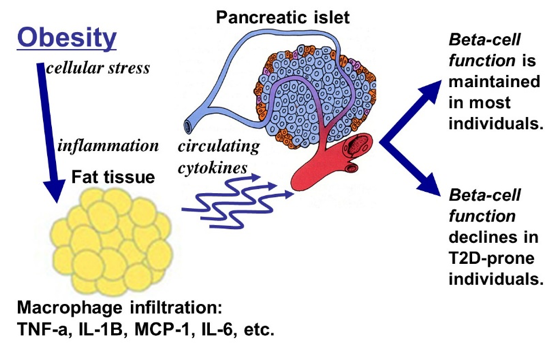Low-grade systemic inflammation
A key factor in early T2D is the development of obesity-induced stress on fat tissue (see Figure). This stress increases the circulating levels of certain proinflammatory cytokines (chemical signals made primarily by the immune system), resulting in a state of low-grade systemic inflammation that can increase the risk of developing T2D. We have published that circulating levels of cytokines in the bloodstream are sufficient to disrupt normal islet function and even kill islets from diabetes-prone mice early in the disease process, without causing much effect on islets from healthy mice. My lab primarily uses fluorescence imaging techniques to examine how islet cells respond to stimulation or to damage in real time.

Our current work is focused on:
- Identifying what cytokines become elevated early in diabetes and whether they impact islet function.
- Figuring out how islets from diabetes-prone mice respond so differently to cytokines than islets from normal healthy mice.
- Identifying new cytokine signaling pathways related to low-grade inflammation.